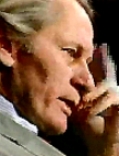|
|
||
| Dirk
Görtler remembers Gaddis in Freiburg, Germany |
||
Dirk Görtler is an artist, designer, illustrator, writer and co-editor of the art magazine Chelsea Hotel – A Magazine for the Arts, a transcontinental dialogue with American literature and art inspired by Robert Creeley. Görtler studied in Stuttgart , Essen and Basel and has been working as an illustrator since 1980. Travels through the U.S.A. and many contacts with American writers led to his specializing in American literature book cover design. His pictures of American subjects and portraits of American writers have been exhibited in Berlin and Bielefeld, and in Freiburg, where he teaches drawing and illustration at the Freiburger Graphik Schule; more information at www.dirk-goertler.de . Read more... |
||
| Harrison
Kinney remembers his friendship with William Gaddis |
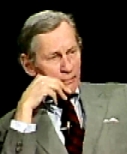 |
|
| Harrison
Kinney attended Washington & Lee University, a journalism major, and
Columbia (MA in English). He was a New Yorker
magazine reporter for five years, contributing more than sixty
"Talk of the Town" pieces. He
joined McCall's as, first, copy chief and than an articles editor. As a
free-lance writer he wrote two children's books, The Lonesome Bear,
based on one of his short stories in The Saturday Evening Post, and The
Kangaroo in the Attic. His The Last Supper of Leonardo da Vinci
is about the replication of the famous painting by an American artist, based
on one of Kinney’s “Talk” stories.
His fiction and articles have appeared in many of the major
magazines. His novel, Has
Anybody Seen My Father?, was published by Simon & Schuster in 1960.
He wrote speeches for IBM executives — it was in this period
that he met Gaddis, who was doing the same sort of work at Pfizer and,
later, for Kodak and the Army Signal Corps -- and more than fifty articles
for the employee publication, Think magazine. Research for the
definitive biography, James Thurber: His Life and Times, had begun
with his MA thesis and continued through the years of interviewing Thurber
and Thurber's friends and colleagues. Published
in 1995, it is still in print. Kinney
is now editing Thurber's correspondence for Simon & Schuster and still
hoping to turn up letters from Thurber that may have eluded his search thus
far. He
was married to Doris Getsinger, a Life magazine reporter, in 1952;
separated in 1972, and is the father of three daughters and a son.
In 2000 he moved from Carmel, N.Y., to Lexington, Virginia, where he
enjoys the research, athletic and cultural facilities of his alma mater,
Washington and Lee University. Harrison
Kinney met Gaddis through a mutual friend, Stewart Richardson, Doubleday
editor, in 1961. Kinney and
Richardson, W&L classmates, were roommates in New York in the early
years. Richardson and Gaddis met through the usual literary
circles of Manhattan. Gaddis
wished to improve his financial position as a speechwriter and Richardson
introduced him to Kinney. “I
was unable to get him hired at IBM,” says Kinney, “but we became firm
and lasting friends.” Read more... |
||
| Ormonde
de Kay interviewed by Charles Monaghan about William Gaddis |
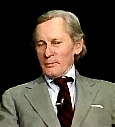 |
|
| Charles
Monaghan describes the interview: "Ormonde
de Kay was born into a socially prominent New York family in 1923. He
served in the Navy in World War II and graduated from Harvard in 1945,
where he was a year ahead of William Gaddis. De Kay has often been
referred to by friends as the "golden boy" of his generation at
Harvard. Tall, handsome and witty, he was head of the Advocate,
a rival Harvard magazine to the Lampoon,
for which Gaddis wrote. Within a year of graduation, de Kay was working on
the script of the Louis de Rochemont movie Lost
Boundaries. "While
de Kay knew Gaddis at Harvard, they did not become friendly until after
graduation, growing particularly close during Gaddis's stay in Paris.
On returning to New York, de Kay became a free lance, writing film
documentaries (like Gaddis), but also producing several children's books
and contributing to American Heritage and Horizon
magazines. De Kay had spoken French since childhood and translated Mother
Goose into French, entitled Rimes
de la Mere Oie; his last book was a history of the Harvard Club
in New York. He died in 1998. "I
met de Kay through my friend Walter Karp, also a contributor to American
Heritage and Horizon. To
prepare for this interview with him, I read Steven Moore's William
Gaddis (Twayne, 1989), which includes a chronology of Gaddis's life
and some biographical information. I taped the interview at an annual
gathering of friends for a pre-Christmas drink at the Algonquin Hotel in
New York on Dec. 24, 1993. Steve Moore has the original tape."
Read more... |
||
| Charles Monaghan, writer, editor and early Gaddis promoter, remembers their association. (coming) | ||
| George
Hunka recalls William Gaddis's course at Bard College, 1979 |
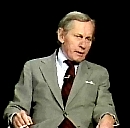 |
|
| George Hunka attended Bard College
beginning in 1979, when he took part in William Gaddis’s seminar “The
Literature of Failure,” and graduated with a degree in Languages &
Literature in 1983. He has published book reviews and essays in
various periodicals, and is currently a new media producer at the Museum
of Modern Art in New York City. "I first came across JR in 1978, when I was 16 years old. I’d been doing a lot of reading amongst the black humorists, and it was probably in an anthology of writing about these novelists – perhaps it was the Richard Seaver/Terry Southern collection Writers in Revolt – that I read a selection from The Recognitions, was intrigued, and started seeking out Gaddis’s work. The Recognitions was tough going, as it would be for any 16-year-old, but JR appealed more to the dialogue-drunk modernist in me. I didn’t understand either novel, but I was entranced by Gaddis’s satiric bite, his pitch-perfect ear, his sheer, rolling delight in the insanity of this fallen world. "The
next year I started my college career at Bard College in upstate New
York. During the fall semester of 1979, Gaddis was teaching two
courses -- a workshop for prose writers and a seminar titled “The
Literature of Failure.” These were both upper-level courses and,
as a freshman, I doubted I’d get in. Fortunately, my academic
advisor Benjamin La Farge, who was chairman of the department at the time,
took a liking to me, and when I told him that I’d really like to attend
the seminar, he brushed aside the problems -- “Oh, that can
be arranged” -- and before I left his office that day I had his
signature on the special registration card I needed for the course." Read more... |
||
| Scott
Zieher drinks with Gaddis at the 1994 National Book Award reception |
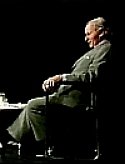 |
|
| "I
received A Frolic of His Own as
a gift in December of 1993. I
was planning a trip from New York to New Orleans the following February
and decided to wait until I had an extended amount of time to give the
book my full attention. "I
took the train south and started reading as soon as I took my seat.
It was not long after that I noticed the name-tag of my extremely
friendly porter: H. Lutz. I
asked him his first name, naturally, and he told me it was Harry, the
exact name of the principal character in Frolic. I hit the roof.
I had had similar moments when it seemed to me that Gaddis was
tapping me on the shoulder, following me around, so to speak. "Once
on the subway, I finished a chapter of The
Recognitions and transferred trains going from Brooklyn to Central Park at Union
Square, beginning the next chapter at my transfer platform.
The characters in the book were at Union Square as well.
I proceeded to Central Park and by the time I’d arrived at a
comfortable spot in the shade and recommenced reading, the characters in
the book had moved to the Central Park zoo.
It was a pleasant afternoon. "But
the Lutz coincidence (mainly my having waited two months to begin reading
the book on that particular train) was simply too much.
I explained my excitement to the flummoxed porter.
Amused, he took down the title and author of the book.
Needless to say I never saw him after my arrival in New Orleans. A
little touch of Harry in the night indeed. (Frolic,
p. 542)." |
||
